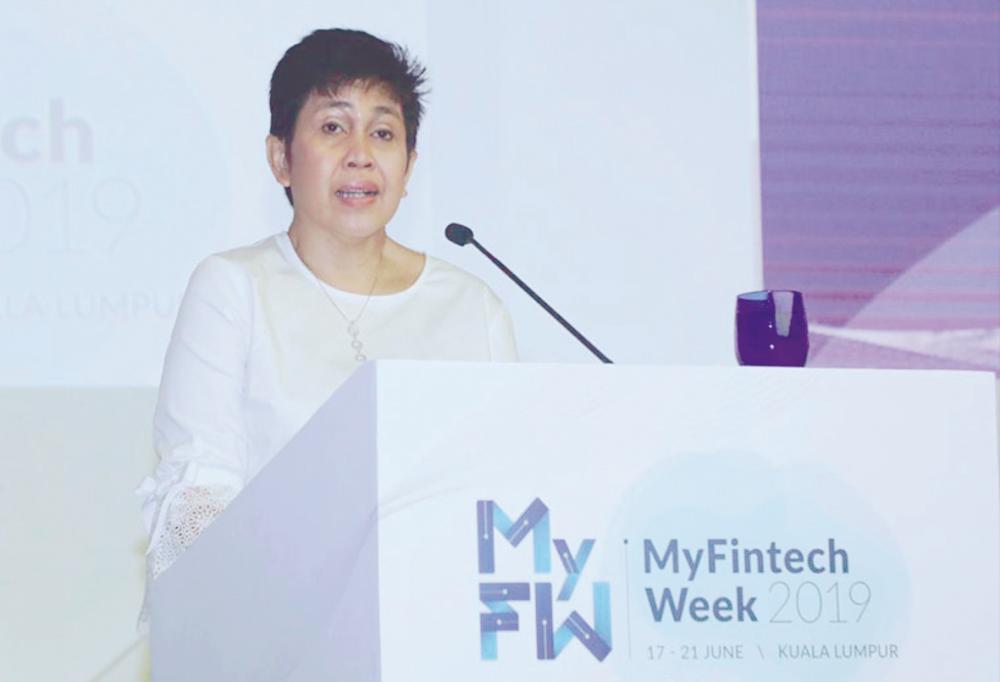KUALA LUMPUR: Bank Negara Malaysia (BNM) expects to operationalise the Financial Threat Intelligence Platform before the year-end as part of its efforts to strengthen platforms for collaboration in building a safe environment for innovation.
Governor Datuk Nor Shamsiah Mohd Yunus said the central bank, together with the financial industry, is in the process of establishing the platform.
“The platform will collate, analyse and disseminate real-time information on cyber threats and trends to strengthen the detective capabilities of the industry against such threats,” she said at the opening ceremony of MyFintech Week 2019 here today.
The central bank’s ongoing efforts to build an enabling yet safe environment for innovation also include building inter-operable infrastructures. This will start with open and fair access to a shared payment infrastructure for banks and non-banks alike.
“It is also important to recognise the need for other digital public infrastructures as key enablers to harness the full potential of fintech. These include having a national digital identity system, framework for open API (Open Application Programming Interface) and open banking, clear cloud policy and nationwide broadband connectivity.”
Nor Shamsiah said BNM is further differentiating its regulatory and supervisory approach to capture new sources and transmission of risks while allowing room for experimentation and for firms to develop economies of scale.
“An important objective will be minimising regulatory arbitrage, which can lead to risks building up in parts of the financial system that may be subject to differentiated regulations. We anticipate that this will call for a much more dynamic approach to regulation and supervision as well as better communication of regulatory developments going forward.”
Nor Shamsiah called for a financial system that is relevant, safe and socially responsible. For example, as the country moves towards becoming a digital economy, the financial sector must accord adequate support to innovative small and medium enterprises, such as those involved in e-commerce. Equally important, she said, this imperative is not only for banks, but extends to the other parts of the financial sector.
“Non-banks such as venture capital and private equity firms, as well as alternative financiers such as factoring and leasing companies, have an equal stake in this and should also play a more active role in financing the needs of businesses.”
Nor Shamsiah said the ability of finance to mobilise capital, create leverage and distribute risk allows it to be a powerful force for good. But excessive and unbridled risk-taking creates instability which is harmful not only for the particular firm, but the economy and society at large.
She said fintech holds enormous potential to enhance competition, increase productivity, address unfulfilled consumer demand and fundamentally change the way institutions provide financial services.
Similarly for Islamic finance, adoption of technology could present significant opportunities to reduce the cost of financial intermediation and expand access. For example, distributed ledger technology could enable automated execution of contracts through the use of digital protocols, or smart contracts, which can simplify complex syariah contractual processes.
International Monetary Fund financial counsellor and director Tobias Adrian said new technologies, such as blockchain, are at the core extremely safe, but around these safe technologies are business models that are potentially vulnerable.
“Risk managers of financial services companies always say the number one risks are cyber risks. For the moment, we have not seen a systemic failure such as the 2008 crisis due to cyber attracks, but the potential is there. The financial system is only as safe as the weakest link is safe. Cyber risk is certainly one considerations that we must ever mind from policy and business.”
He sees that over the next couple of years, there will be a debate among global regulatary standards for new technologies.
“In most countries, fintech for the moment is not yet systemic and so the regulators have not moved to global regulatory standards for the fintechs. In some countries, we do see large and sometimes systemic risks emerging from new technologies and fintech. Looking at the regulations for fintech around the world, on one hand we see fragmentation, on the other a race to the button in certain jurisdictions,” Adrian said during a panel session at the event.














